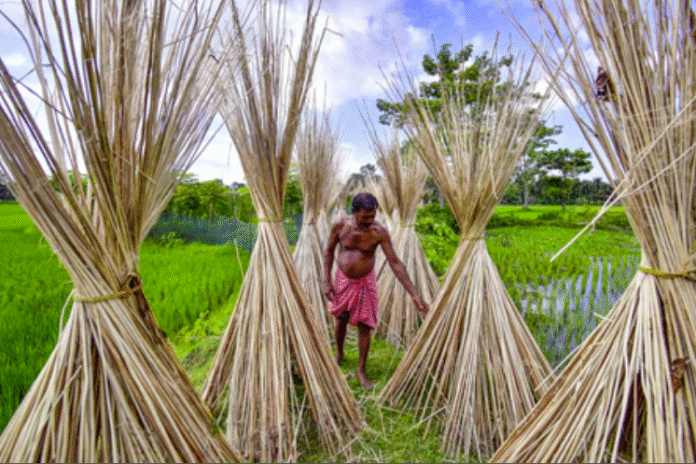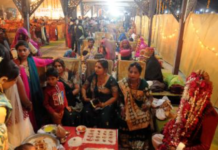New Delhi– India has broadened its ban on imports from Bangladesh, adding more jute products to the list of items barred from entry through land ports amid worsening bilateral relations.
The newly prohibited goods, effective immediately, include bleached and unbleached woven fabrics made from jute or other textile bast fibers; twine, cordage, and rope made of jute; twine, cordage, rope, and cables; and jute sacks and bags.
These items are now banned from entering through any Land Customs Stations (LCS) or Integrated Check Posts (ICP) in Assam, Meghalaya, Tripura, and Mizoram, as well as LCS Changrabandha and Fulbari in West Bengal. According to a notification from the Directorate General of Foreign Trade, imports of these goods will be permitted only through the Nhava Sheva seaport in Navi Mumbai.
The directive clarifies that the restrictions will not apply to Bangladeshi exports to Nepal or Bhutan. However, it explicitly bars the re-export of these goods to India from either country.
This move follows a June 27 notification regulating several other Bangladeshi goods, including flax tow and waste, jute and other textile bast fibers (raw or retted), single flax yarn, single or multiple folded yarn made of jute or other bast fibers, woven fabrics of flax, and unbleached woven fabrics of jute or similar fibers.
On May 17, India also banned the import of certain Bangladeshi goods — including ready-made garments and processed food products — via cross-border trade points, restricting them to designated seaports. That decision is expected to impact goods worth approximately $770 million (Rs 6,600 crore), including ready-made garments valued at $618 million (Rs 5,290 crore), which represent Bangladesh’s most significant export category to India.
Other goods barred from land port entry include fruit-flavored carbonated drinks, processed foods, cotton and cotton yarn waste, plastic and PVC finished products, and wooden furniture, valued at about $153 million (Rs 1,310 crore).
Under the May directive, “Import of all kinds of ready-made garments from Bangladesh shall not be allowed from any land port; however, it is allowed only through Nhava Sheva and Kolkata seaports.”
India’s restrictions come after Bangladesh’s government, in April, banned the import of yarn from India via land ports, as announced by its National Board of Revenue. Earlier, India also ended Bangladesh’s trans-shipment facility, which had allowed Dhaka to export goods to other countries via Indian seaports and airports.
India is Bangladesh’s second-largest trading partner after China. In fiscal year 2022–23, bilateral trade reached around $16 billion, with Bangladesh importing about $14 billion worth of goods from India and exporting roughly $2 billion in return, according to industry data. (Source: IANS)














